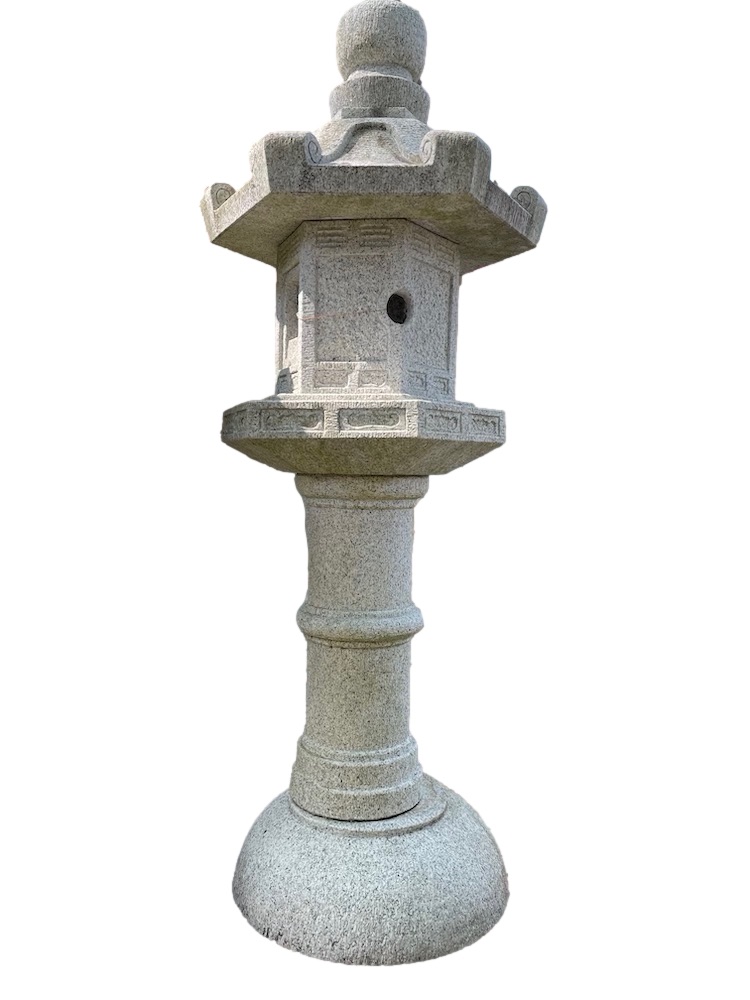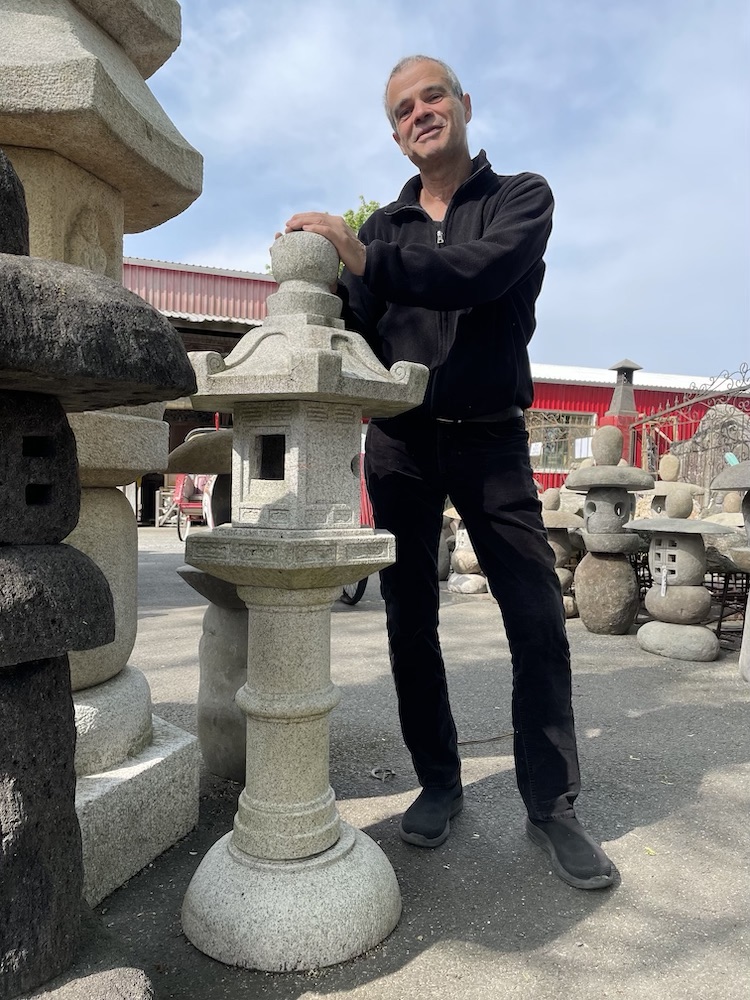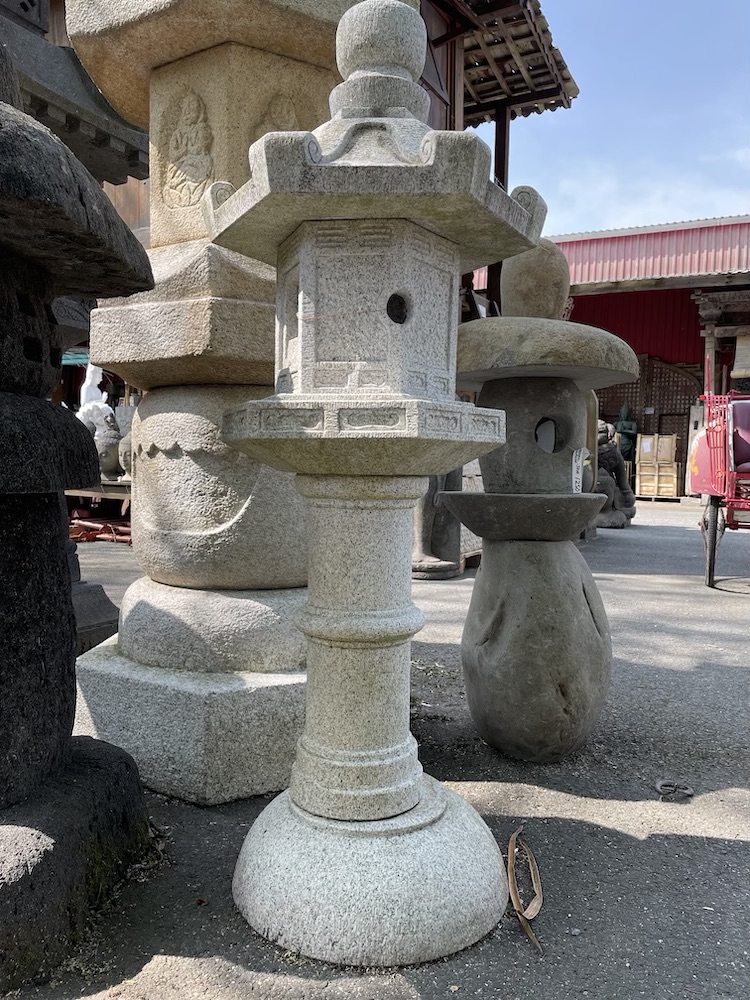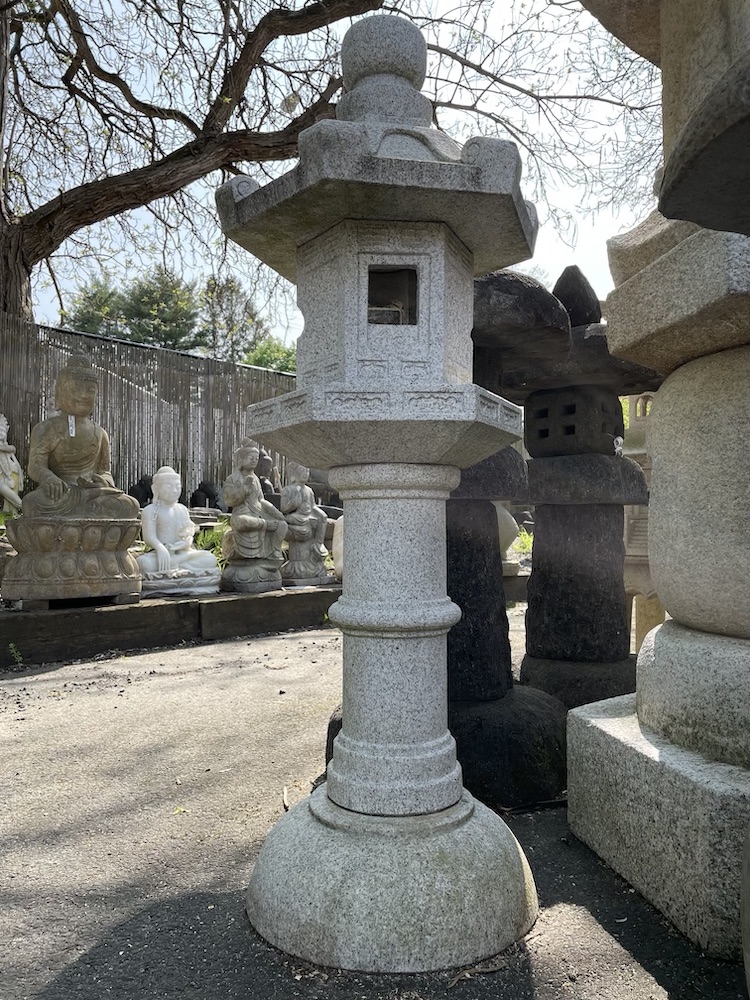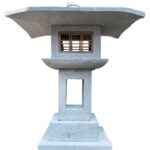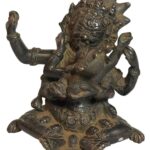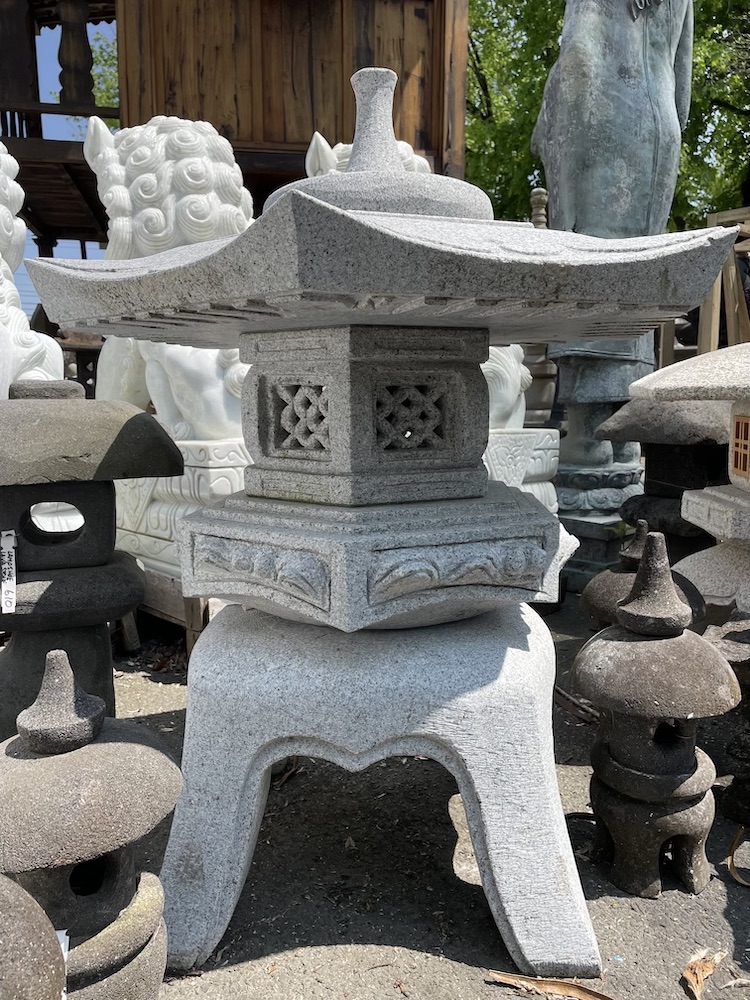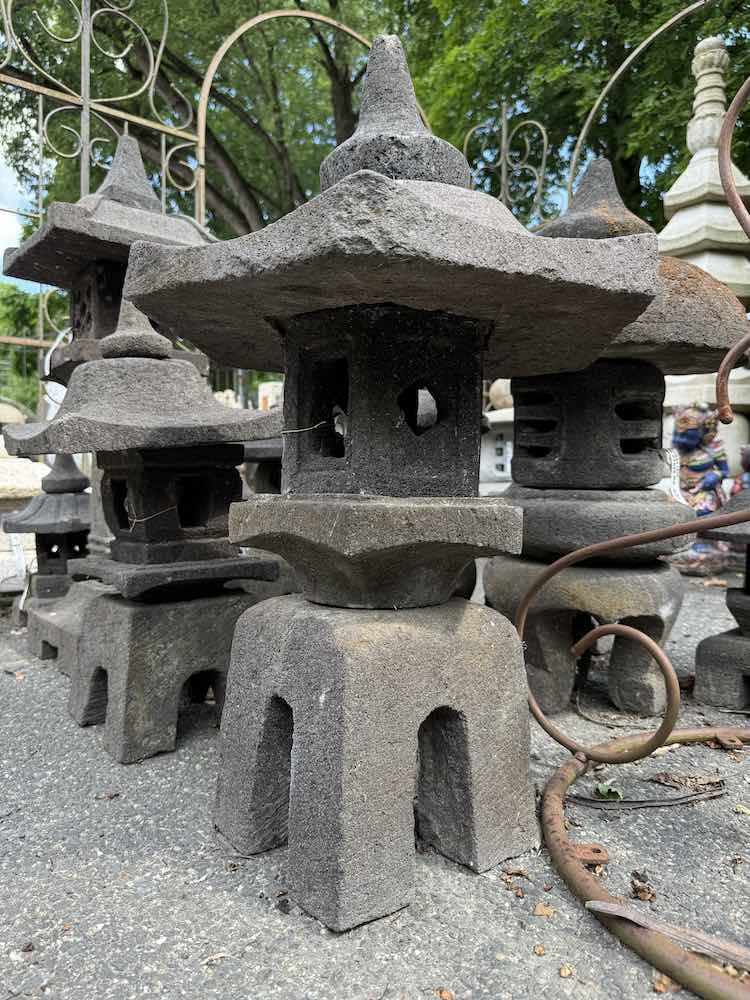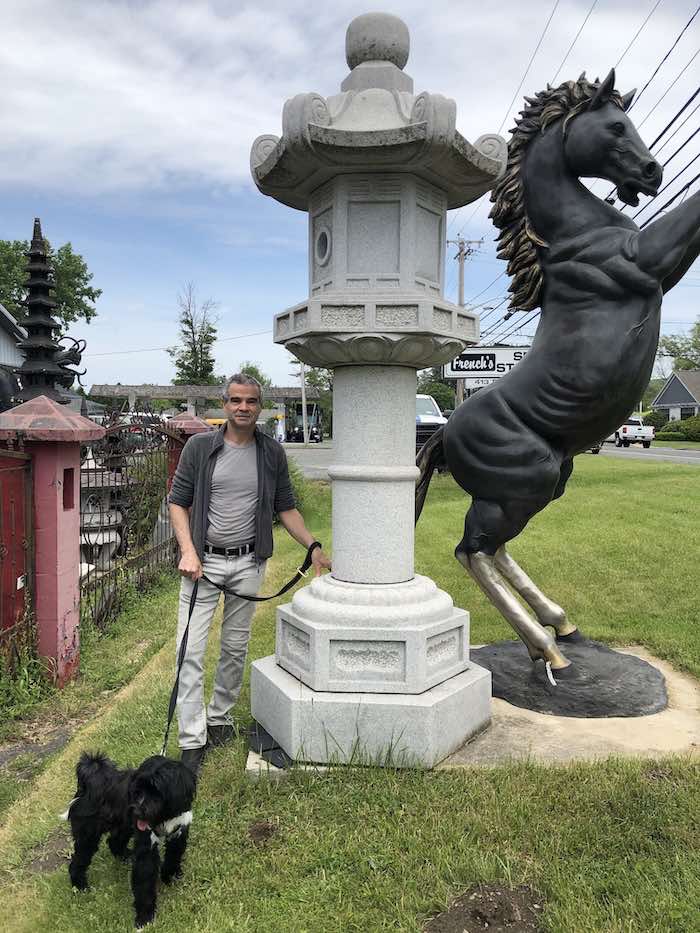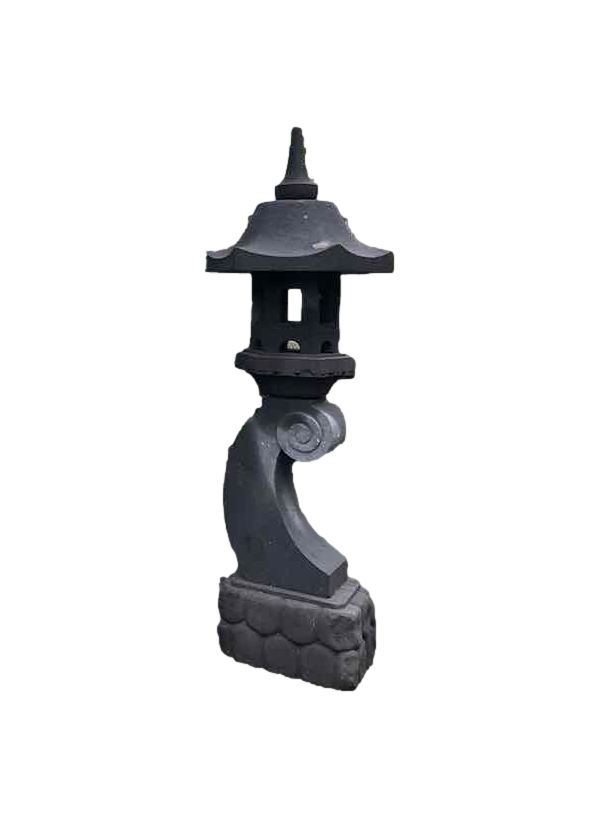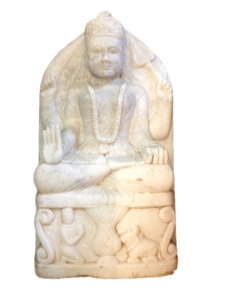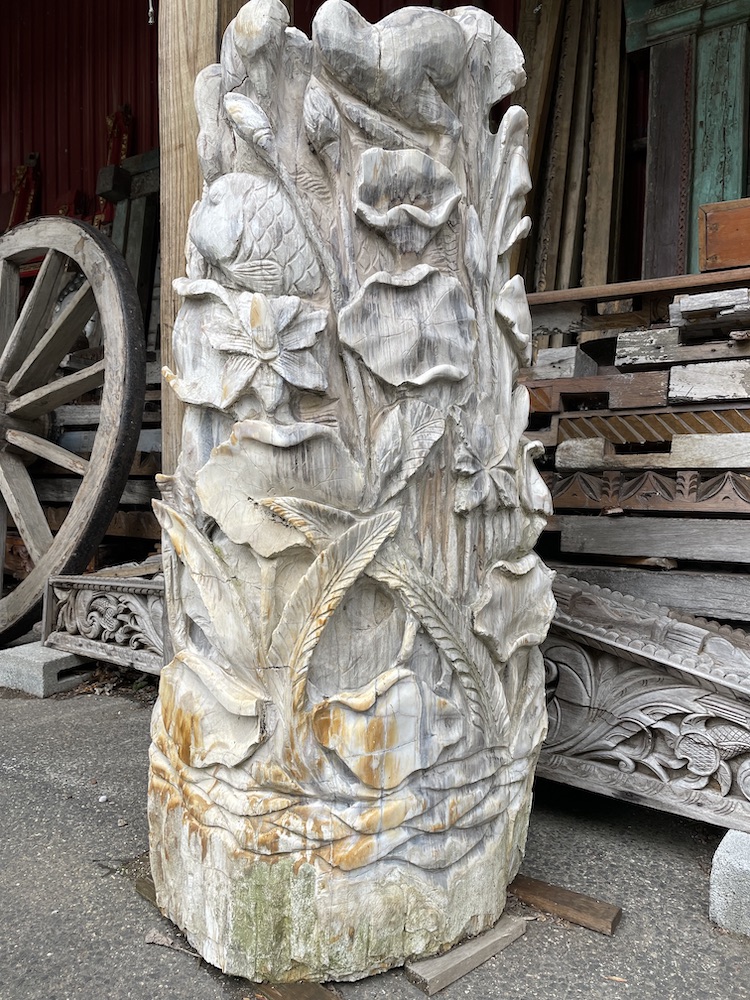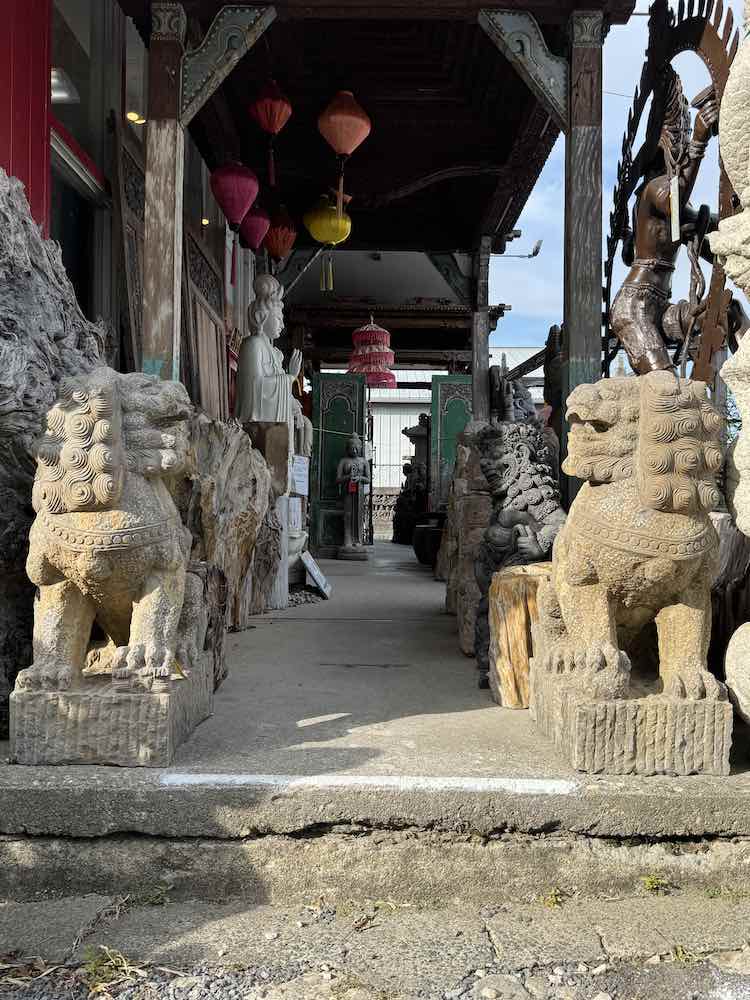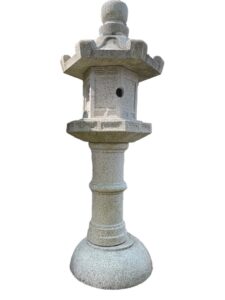
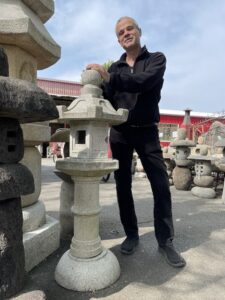
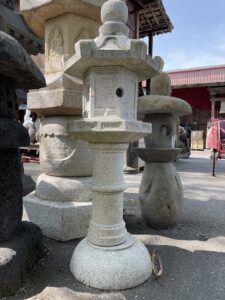
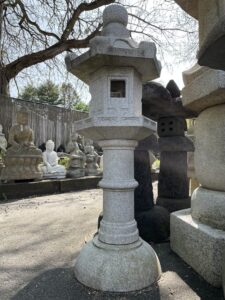
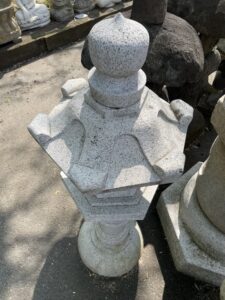
4 Feet Tall Granite Kasuga Doro Lantern
$1,600.00
Description
This is a type of stone toro that is named after the Kasuga shrine in Nara prefecture. The shrine was established during the 8th century. The toro is distinct because of its tall and cylindrical shape. The roof part of the toro is small and has many sides. They are usually at entrances and placed in locations where it is nice to have a high-positioned light source.
The stone lanterns of the Japanese gardens and temples were introduced to Japan from China via Korea during the 6th century as part of the arriving Buddhist tradition, with the light held in the lamp representing the teachings of the Buddha that help overcome the darkness of ignorance.
Originally, lanterns were used to line entrances to temples and pagodas. The temples and shrines of Japan used lanterns made in bronze, iron, and stone to hold votive candles as a decorative, spiritual, and symbolic element in these sacred spaces. Their significance as a votive offering was transferred into Japan’s native Shintoism and they began to appear at shrines too. They were eventually adopted not just as votive lights, but also as more practical lanterns to light the precincts of shrines and temples.
A stone lantern is made up of multiple independent parts that need to be carefully stacked on top of each other to create a perfectly balanced lantern. The slow process of building the lantern in the garden is also a zen process oneself with the stone and nature.
Dimensions:19″ x 19″x 48.5″
Due to the size and/ or the delicate situation of the item. Please contact us for more details about picking up /shipping options.

